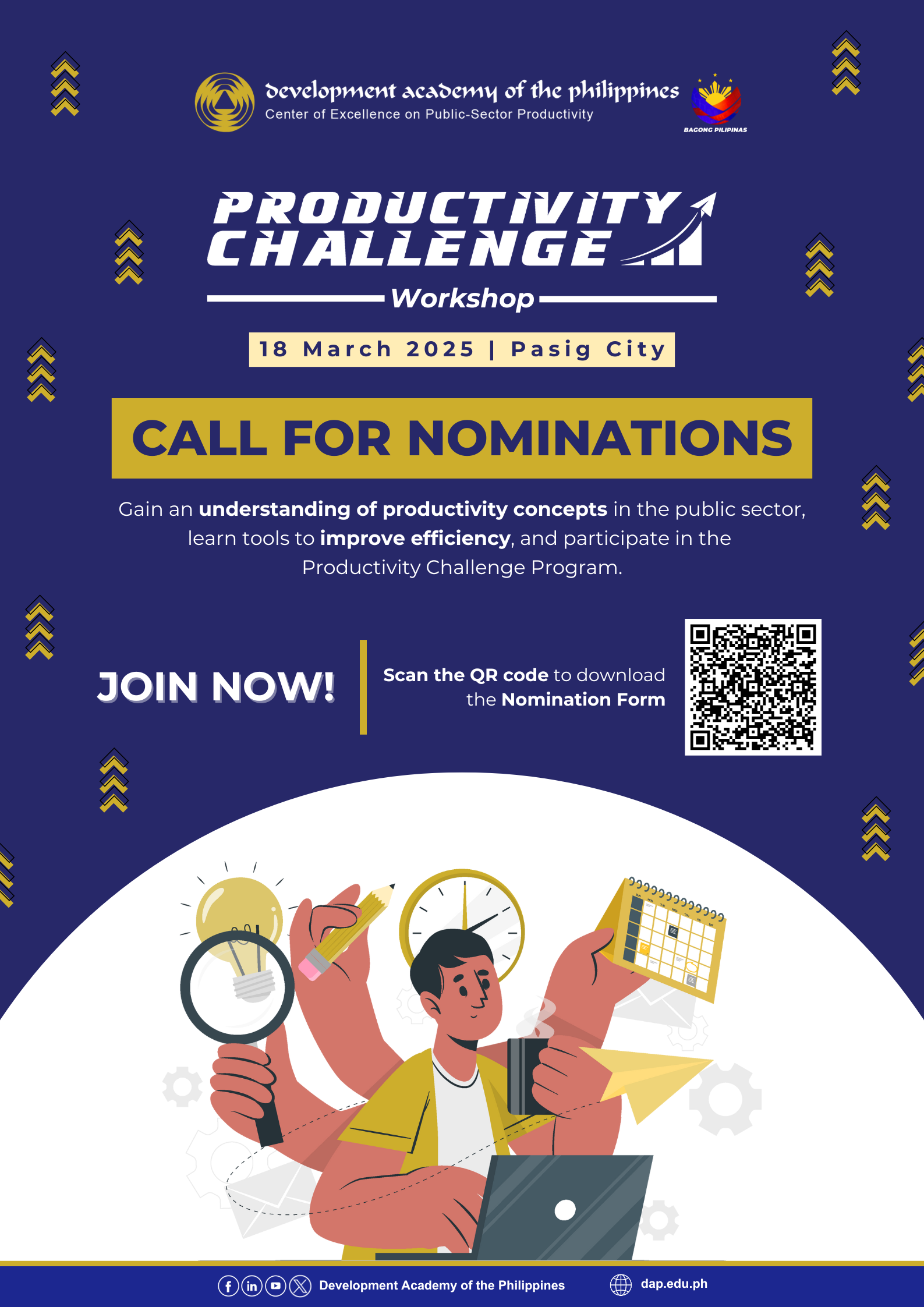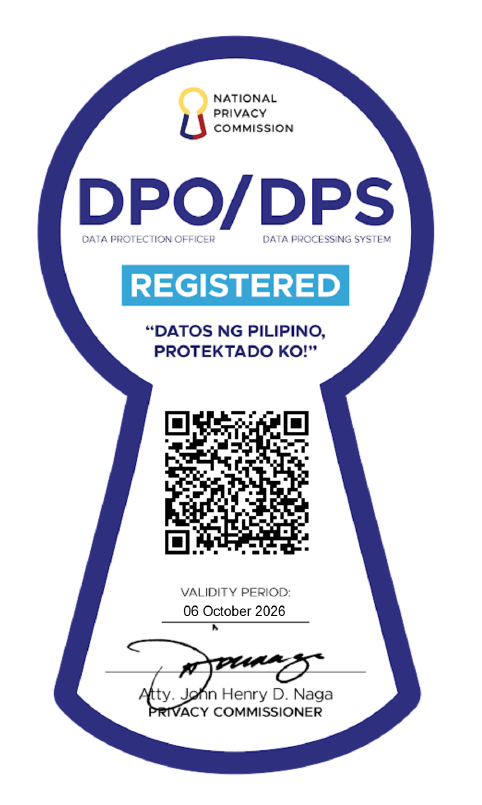
(From left): Former National Statistician Dr. Lisa Grace Bersales; Word Bank Road Safety Consultant Mr. Mirick Paala, Dr. Jalton Taguibao of the UP Political Science Department, and Dr. Alfredo Mahar Francisco Lagmay of the UP Resilience Institute and NOAH Center were featured at the CBILLS lecture on Harnessing Date for Evidence-Based Public Policymaking last September 26 at the House of Representatives. (Photos by Jeannalla Burns)
The Development Academy of the Philippines (DAP), through its Center for Governance (CFG), featured four experts for the lecture on “Harnessing Data for Evidence-based Public Policymaking,” for some 55 participants from the emerging leader and middle manager tracks of the Capability Building on Innovative Leadership for Legislative Staff (CBILLS) program last September 26 at the House of Representatives in Quezon City.
Dr. Lisa Grace Bersales, former National Statistician and UP School of Statistics professor, presented an overview of data science, big data, and data analytics in the session on “Introduction to Data Science and Public Policy.” She highlighted the role of official statistics in public policy development, and monitoring and evaluation. She said that data can be classified using the 5Vs: velocity, variety, volume, veracity, and value. She also introduced the Philippine Statistical Development Program which aims to improve the lives of Filipinos. She advocated for the viewing of data in smaller scales (i.e., per municipality, per barangay, etc.) rather than by region or province. Moreover, she demonstrated the use of the Philippine Statistical Authority’s OpenSTAT website in accessing general data in aid of policymaking.
Meanwhile, Dr. Jalton Taguibao of the University of the Philippines Diliman- Political Science Department, in his presentation on “Communicating Data for Public Policy” shared that “the digitization and datafication of current human life has made the study of data very important now more than ever.” He said that the story supersedes the data gathered. Furthermore, he explained the difference between big data and thick data, where the former is scooped from a vast amount of data while the latter focuses on the experience of the people and not on the numbers. According to him thick data allows the deepening of data analysis by looking at more complex policy factors.
World Bank (WB) Road Safety Consultant Mirick Paala presented the DRIVERS (Data for Road Incident Visualization Evaluation and Reporting System) website of the Department of Transportation (DOTr) in his session on “Using Road incident Data for Road Safety.” He said that the DOTr and the WB worked closely to develop a data collection system for road crashes. According to him, the DRIVERS serves as a platform for the reporting of road incident data and map tagging of areas with commonly occurring instances of accidents or crashes and it aims to solve the underreporting of road accidents due to the manual recording in logbooks. The Department of Science and Technology-Advanced Science and Technology Institute hosts the DRIVERS website via https://roadsafety.gov.ph.
Dr. Alfredo Mahar Francisco Lagmay of the UP Resilience Institute and the Nationwide Operational Assessment of Hazards (NOAH) Center showcased the NOAH and its project undertaking with the City of Manila in the session “Towards an Intelligent Disaster Risk and Resilience Management for the City of Manila.” The NOAH, he said, is currently lodged under the University of the Philippines which advocates participatory planning alongside with probabilistic data-making. He also bared that the UP Resilience Institute is currently assisting the City of Manila in strengthening its disaster-risk reduction management efforts. Moreover, he shared that their guiding principles include having a “science-based climate change projection,” “advanced but low-cost technologies,” and employing a participatory process.
The CBILLS program, beginning 2019, expanded its coverage to include other units and offices of the Philippine Senate and House of Representatives, and to provide more inclusive developmental interventions for the legislative branch’s workforce. – Jeannine Tan




